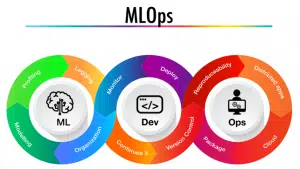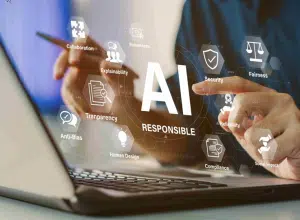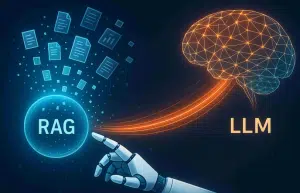
AI Skills for IT Teams
AI skills for IT teams | What is needed?
AI is no longer experimental — it’s operational. Yet, according to McKinsey, 70% of AI projects fail to move from pilot to production, most often due to skills gaps in IT teams.
Organizations don’t just need data scientists — they need full-stack AI capability across infrastructure, deployment, governance, and continuous improvement.
This guide outlines the specialist technical skills CIOs and CTOs should prioritise, with practical advice on when to hire, when to upskill, and how to build a resilient AI-ready IT function.
Specialist AI Skill Domains

Data Engineering & Infrastructure
🌀 Core skills: database design, ETL pipelines, real-time data streaming.
🧰Tools/platforms: Apache Spark, Kafka, Airflow, Databricks.
☁️ Cloud equivalents: AWS Glue, Azure Data Factory, Google BigQuery.
⚠️ Why it matters: Poor data quality and pipelines are the #1 barrier to production AI
MLOps & Model Deployment
🌀 Core skills: containerization (Docker, Kubernetes), CI/CD for ML, model monitoring.
🧰 Tools/platforms: MLflow, Kubeflow, Sagemaker, Vertex AI.
⚠️ Why it matters: Prototype models must scale — otherwise AI remains a lab project.

AI/ML Cloud Architecture
🌀 Core skills: Model hosting, distributed training, scalable data pipelines.
🧰☁️ AWS stack: SageMaker, Bedrock, Comprehend, Rekognition. • Azure stack: Azure ML, Cognitive Services, OpenAI API. • Google Cloud stack: Vertex AI, AutoML, Dialogflow.
⚠️Why it matters: Enterprise AI runs on cloud-native services — cross-platform fluency prevents vendor lock-in.
Data Science & Advanced Analytics
🌀 Core skills: experiment design, feature engineering, model evaluation.
🧰 Tools: Python (NumPy, Pandas, SciKit-Learn), R, Jupyter, Tableau/PowerBI.
⚠️Why it matters: Bridges raw data and business value.

AI Agent Development and Management
🌀 Core skills: Multi-agent orchestration, context management, API integration, safety guardrails.
🧰 Tools: LangChain, Microsoft AutoGen, CrewAI, OpenAI o1/o3 APIs.
⚠️ Why it matters: As autonomous agents take on operational tasks, IT teams need skills to ensure reliability, accountability, and alignment with organisational policies.

AI Governance & Compliance
🌀Core skills: bias detection, explainability, adversarial testing.
🧰 Tools: IBM AI Fairness 360, Google What-If, Responsible AI dashboards.
⚠️ Why it matters: Regulatory compliance (EU AI Act, US EO on AI) demands technical controls.


Generative AI Specialisations
🌀 PromptOps & RAG: building reliable pipelines for LLMs.
🧰Fine-tuning & orchestration: Hugging Face, LangChain. • Vector databases: Pinecone, Weaviate, Milvus.
⚠️Why it matters: Generative AI dominates current investment — teams must be skilled in integration and governance.
AI Security and Risk Management
🌀 Core skills: Secure model deployment, data integrity, adversarial defence.
🧰 Tools: Microsoft Presidio, IBM Watson OpenScale, MITRE ATLAS, NIST AI RMF.
⚠️ Why it matters: AI models create new attack surfaces — from data poisoning to prompt injection. Security-by-design and continuous monitoring are now essential for compliance and trust.

What AI Can (and Can’t) Replace in IT Work
AI tools are now embedded across the IT lifecycle — but not all technical skills are equally automatable.
Generative AI accelerates structured, repeatable tasks such as coding, testing, and documentation.
However, skills that rely on context, judgment, and cross-system reasoning remain uniquely human.
| Skill Area | AI Replicability | Human Differentiator |
|---|---|---|
| Routine code generation | High | Designing architecture, debugging complex logic |
| Data cleaning & reporting | High | Defining metrics, interpreting anomalies |
| Testing & QA | High | Prioritizing tests, evaluating business impact |
| Cloud deployment & scaling | Moderate | Cross-platform integration, cost/performance trade-offs |
| Cybersecurity monitoring | Moderate | Threat modeling, creative mitigation |
| AI governance & risk | Low | Ethical reasoning, regulatory alignment |
| Systems design & architecture | Low | Contextual decision-making, innovation |
| Leadership & collaboration | Very Low | Communication, coordination, stakeholder alignment |
Insight: AI amplifies technical throughput but not strategic capability.
IT teams still need to combine AI-accelerated skills with human-led oversight to ensure reliability, compliance, and innovation.
Hire or Upskill?
Domain
Data Engineering
MLOps
Cloud AI Services
Data Science
AI agents
AI Governance
AI Security
Hire if..
You lack modern ETL/streaming expertise.
No in-house DevOps culture.
You’re expanding into multi-cloud.
No analysts capable of statistical modelling
Developing or deploying autonomous AI agents
Immediate compliance obligations
Regulated or high-risk environments, special security requirements
Upskill if....
Existing DBAs/IT ops staff can adapt.
You already have DevOps pipelines — extend to ML.
Team already certified in one platform.
BI/analytics team exists, just needs ML training.
Teams already build LLM-based tools but need to scale them
Team has security/QA staff who can cross-train.
Team already manages AI security – train on model specific risks
Building an AI-Capable IT Team
⬇️ Map skills to roles:
➢Data Engineer → Senior Data Engineer → AI Architect.
➢ DevOps Engineer → MLOps Specialist → AI Ops Lead.
⬇️ Assess current vs. required skills using a competency framework (e.g. Centranum).
⬇️ Plan development paths: certifications, project-based learning, mentoring.
⬇️ Integrate with HR/L&D so technical training is linked to business outcomes
CIO/CTO Checklist: Are We Ready?
☐ Do we have at least one data engineer who can manage pipelines at scale?
☐ Do we have MLOps expertise for model deployment & monitoring?
☐ Are our staff trained in at least one major AI cloud stack?
☐ Do we have responsible AI governance processes in place?
☐ Are we exploring generative AI safely with proper technical skills?
If you answered “no” to two or more, your AI program is at risk.
Next Steps
AI capability isn’t just about hiring scarce talent — it’s about systematically mapping, tracking, and developing skills across your IT function.
Centranum’s platform provides:
• Role-based AI competency frameworks.
• Skills mapping and gap analysis for IT teams.
• Development planning aligned to emerging AI platforms.